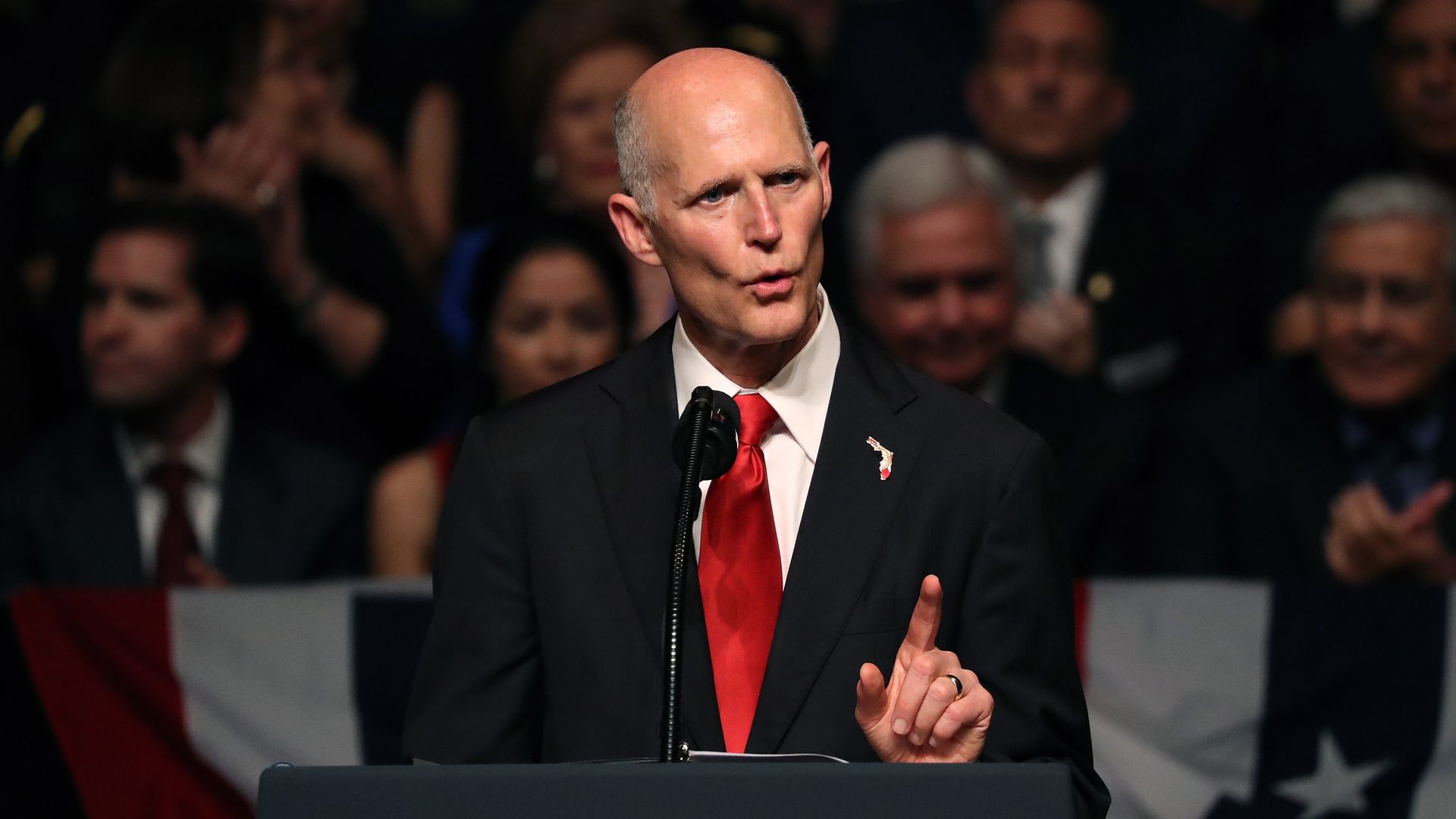Feb 12, 2018
Florida Gov. defends voting rights system for ex-felons after judge's ruling
Add Axios as your preferred source to
see more of our stories on Google.

Florida Governor Rick Scott (R). Photo: Joe Raedle / Getty Images
Add Axios as your preferred source to
see more of our stories on Google.

Florida Governor Rick Scott (R). Photo: Joe Raedle / Getty Images